
Shutterstock
- There are plenty of healthy gift alternatives to candy and chocolate for the holidays that have less sugar.
- A good-quality tea, coffee, or wine are all items to be savored rather than devoured.
- If you still want something sweet, dark chocolate is a healthier choice than milk chocolate.
- Visit Insider’s Health Reference library for more advice.
Candy canes and Christmas. Chocolates and Valentine’s Day. Sugar-coated marshmallows and Easter. And then there’s Halloween: sugar everywhere. Holidays and candy just seem to go hand-in-hand.
However, there are many reasons why you might choose to forgo this sweet but potentially problematic tradition. If you or a loved one are trying to cut down on added sugar to manage or avoid health problems, such as type 2 diabetes, heart disease, and weight gain, there are many tasty yet nutritious gift alternatives during the holidays.
Here are three registered dietitians’ top healthy alternatives to candy and chocolate that still work well as a gift – or as a treat for yourself.
Fruit
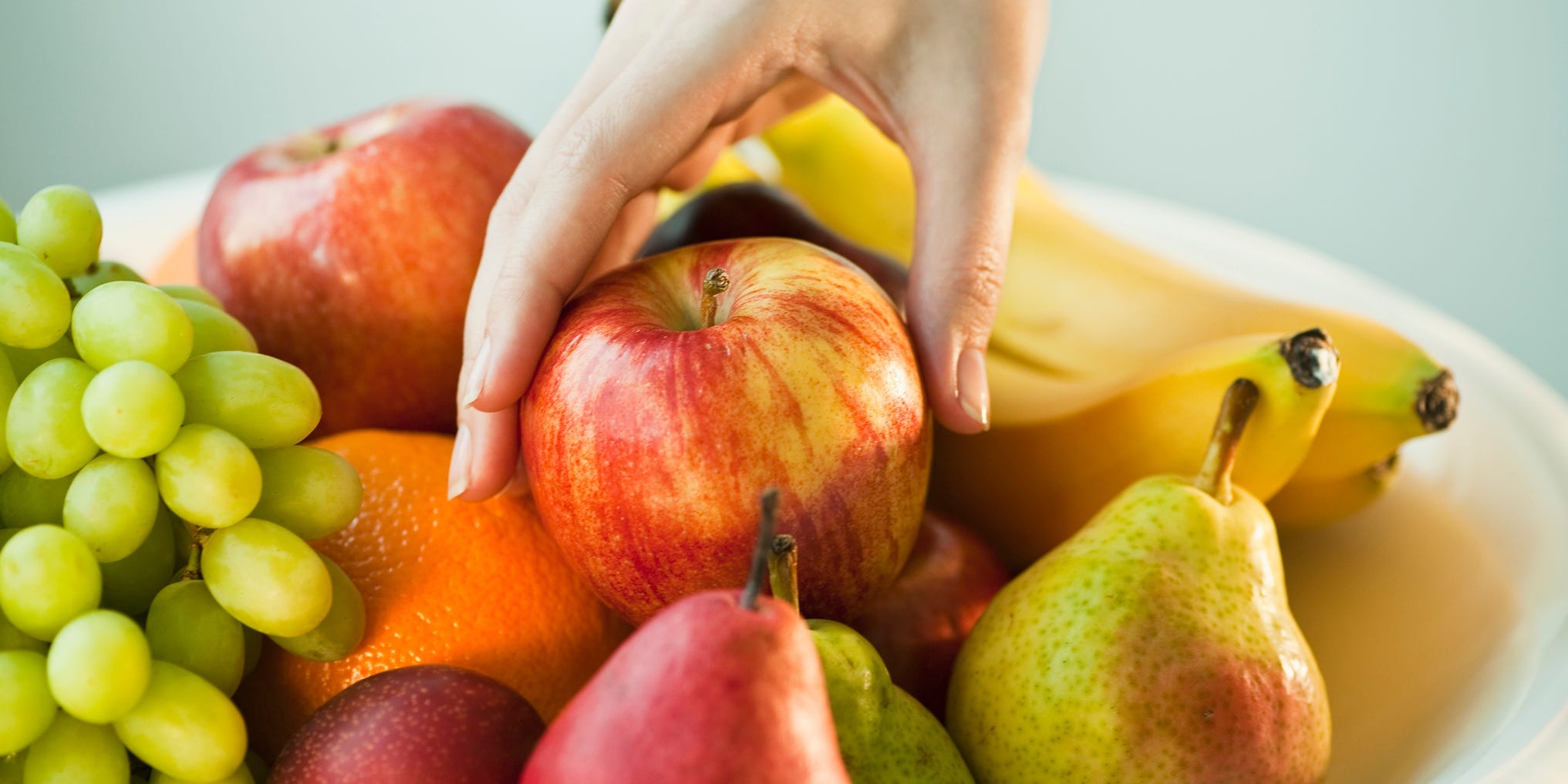
Tetra Images/Getty Images
The fiber in fruit (which candy lacks) not only makes you feel more satiated, it also slows the breakdown and absorption of sugar in your bloodstream. This is important since blood sugar spikes can cause negative short-term effects like tiredness, and serious long-term issues such as type 2 diabetes, heart disease, and kidney disease.
Keep in mind that it’s easy to overeat dried fruit since it shrinks once the water is removed. Keatley also advises reading the label to make sure no sugar is added in the dehydration process.
Chef and registered dietitian Dana Sicko suggests blending a frozen banana in a food processor until it has the creamy consistency of ice cream, while certified dietitian/nutritionist Gina Keatley proposes making fruit kabobs or cutting them into fun shapes - for instance, slicing watermelon into hearts.
Nuts
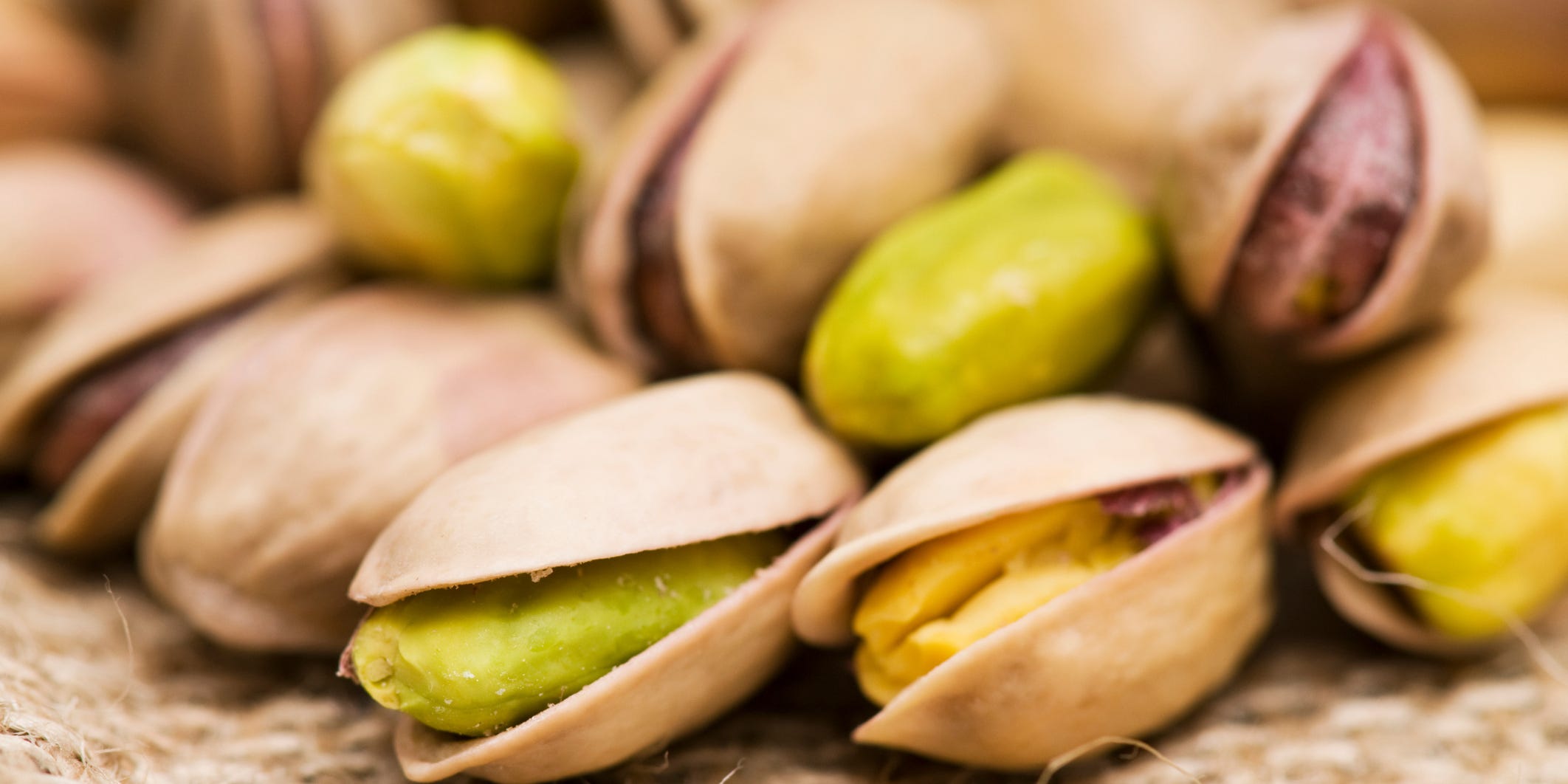
101cats/Getty Images
"Nuts contain heart-healthy fats and phytosterols, which help lower LDL or bad cholesterol," says registered dietitian Kristin Gillespie, MS.
Eating nuts like almonds, pistachios, and pecans may also help to lower inflammation linked to heart disease, reduce your risk of developing blood clots, and lower your LDL or "bad" cholesterol levels.
- Almonds, for example, offer 37% of your RDI for vitamin E per 1-ounce serving and are high in satiating fiber.
- Pistachios - which are one of the lowest-calorie nuts - pack 6 grams of protein per 1-ounce serving and a hefty dose of vitamin B6, as well as minerals like phosphorus, copper, and manganese.
- Walnuts, meanwhile, are the only nut that's considered a good source of omega-3 fatty acids, which are known for improving heart, eye, and joint health.
A fun DIY gift that Sicko suggests is roasting raw nuts of your choice with high-quality olive oil and either sweet seasoning (like cinnamon and vanilla) or savory seasoning (rosemary, salt, pepper, and garlic powder).
Trail mix
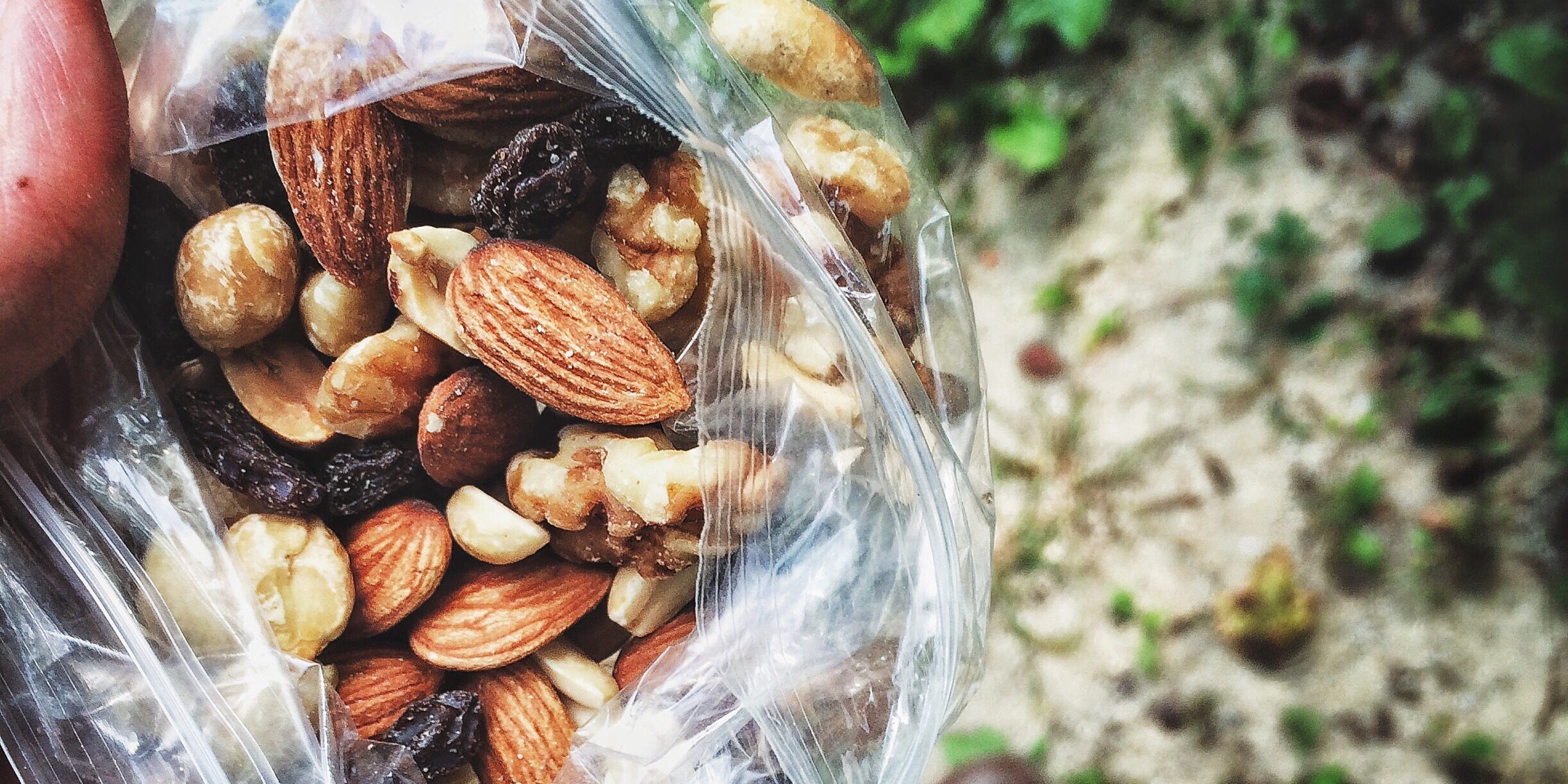
Madisyn Reppucci / EyeEm/Getty Images
"The variety of macronutrients including carbs, fat, and protein in a trail mix will help keep your blood sugar from spiking," Sicko says.
Gillespie advises checking the ingredient label on trail mix to make sure it isn't loaded with sodium or added sugar from sugar-coated dried fruit, "yogurt" covered pretzels or raisins, and/or candy.
Experts say your best bet is one that contains only a mix of different nuts and unsweetened dried fruit, such as raisins.
Coffee
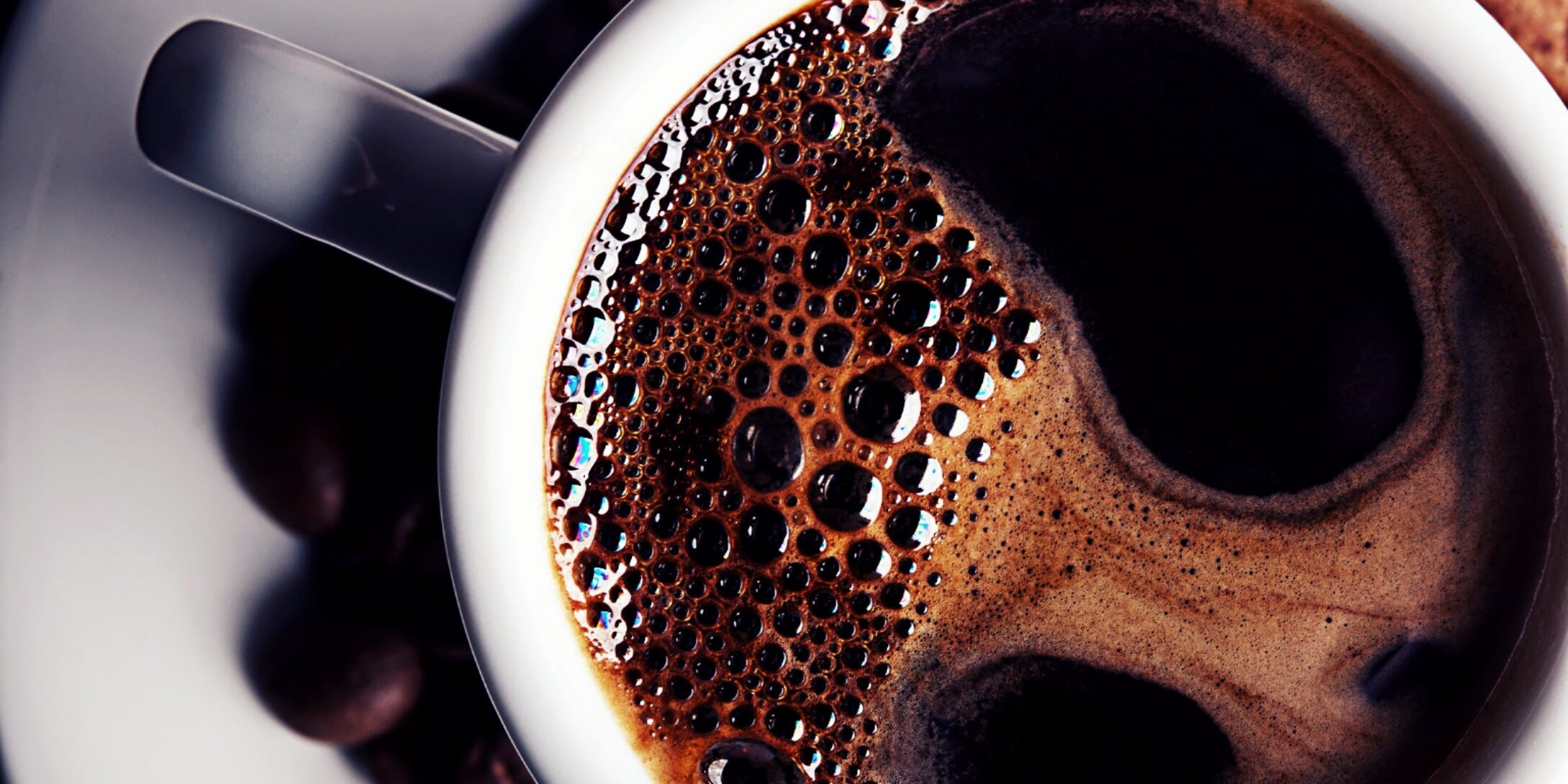
Daniele Jesus/Getty Images
Coffee has been linked to a wide range of health benefits, including a lower risk of obesity, cardiovascular disease, liver disease, breast cancer, prostate cancer, and certain types of skin cancer, as well as increased mental focus and improved brain health.
"It's rich in antioxidants and several B vitamins which help keep your body healthy, and as an added benefit, it has no sugar and almost no calories," says Gillespie.
Whether you're buying it for yourself or giving it as a gift, consider splurging on single-origin beans, which tend to have a richer and more robust taste.
Tea
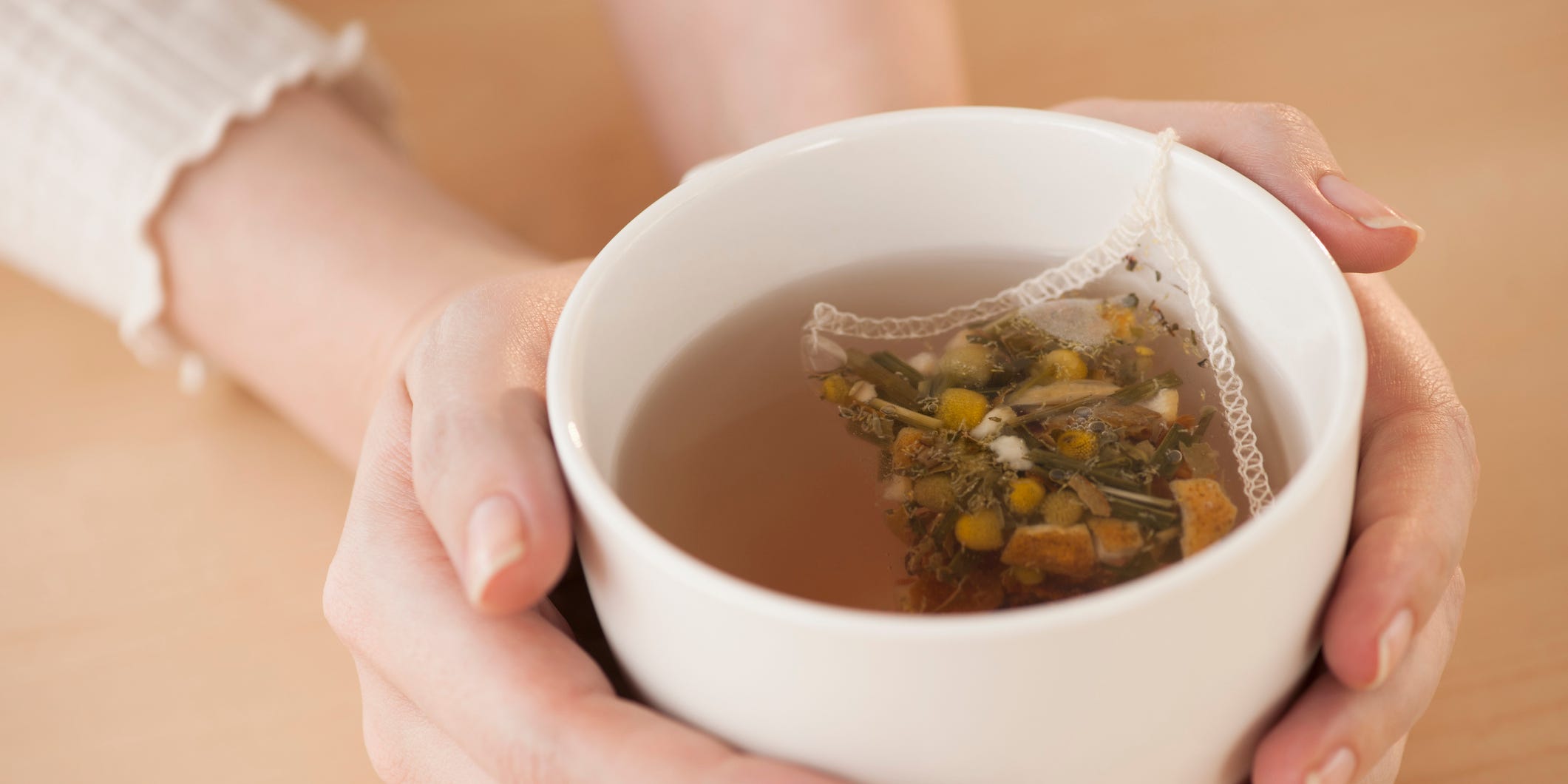
Tetra Images/Getty Images
Like coffee, tea is essentially a calorie-free and sugar-free treat. Tea is lower in caffeine than coffee, though, and certain types - like green tea, white tea, and oolong tea - are especially high in antioxidants that may help prevent cancer.
Keatley suggests seeking out "dessert-blend" teas in flavors like apple pie, creme brulee, and chocolate mint, which can taste more like an indulgence.
Wine

Insider Studios
A bottle of wine is a timeless gift and treat to enjoy around the holidays, but research shows that red wine may be a better choice than white wine in terms of health benefits.
In fact, a glass of red contains nearly 10 times more polyphenols than a glass of white wine. Research is mixed, but resveratrol, one of the polyphenols in red wine, might help lower bad cholesterol while boosting levels of good cholesterol.
Gillespie advises avoiding sweet varieties (like red Moscato) that are high in sugar.
Oysters
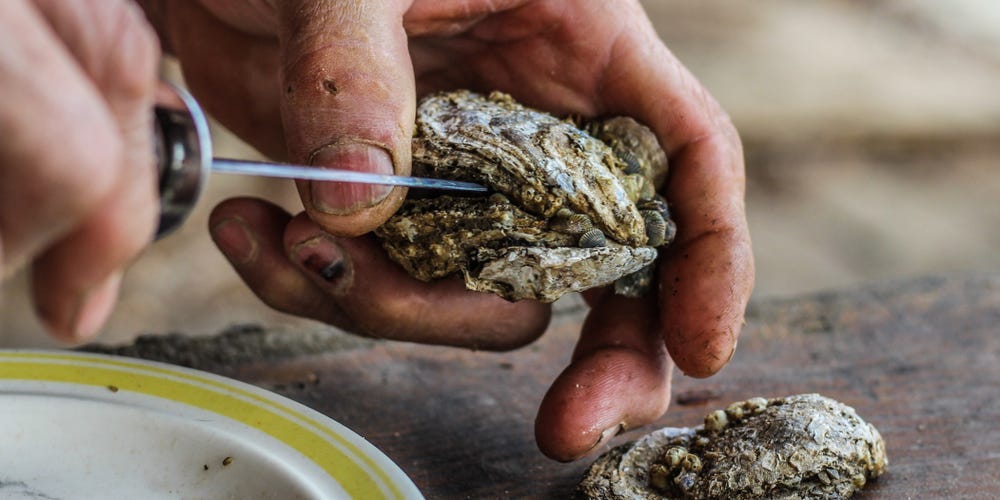
ButtermilkgirlVirginia/Shutterstock
Oysters have long been thought of as an aphrodisiac, but there's little research to support that oysters impact your sex drive.
That said, Keatley notes oysters are high in an amino acid called d-aspartic acid, which plays a role in testosterone production - although studies have yielded mixed results about just how much of an impact it can have.
Oysters are also low in calories, high in protein, and an excellent source of vitamins and minerals such as zinc, vitamins B12 and D, selenium, iron, and copper.
Caviar
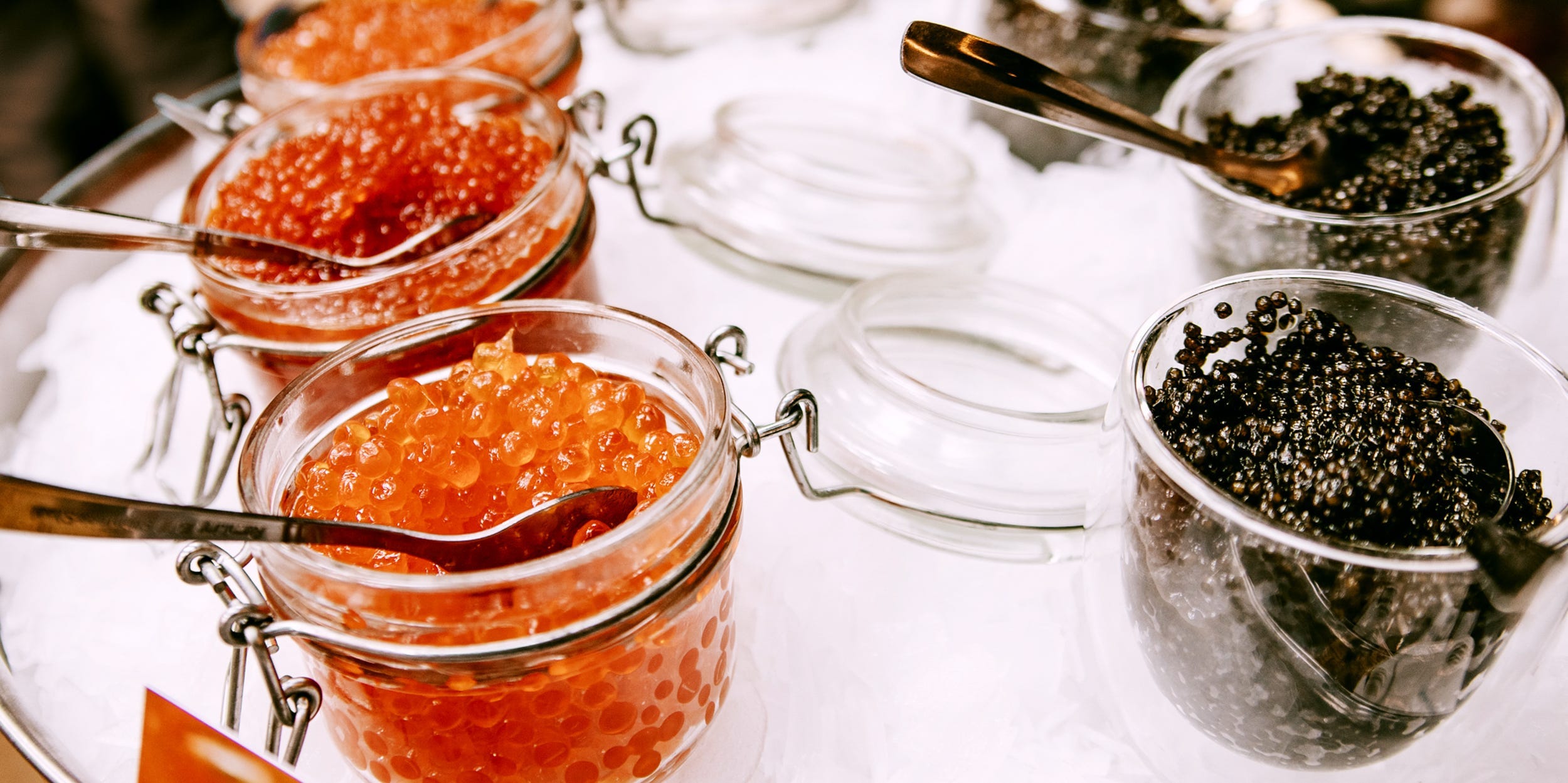
Shutterstock
Caviar, or fish roe, is a delicious salty delicacy, albeit expensive. According to Gillespie, it is one of the best sources of omega-3 fatty acids, which play an important role in brain, heart, and immune health. Omega-3s may also help reduce your risk of cardiovascular disease.
Like oysters, caviar contains protein, vitamin D, vitamin B12, iron, magnesium, and selenium.
Fresh herbs
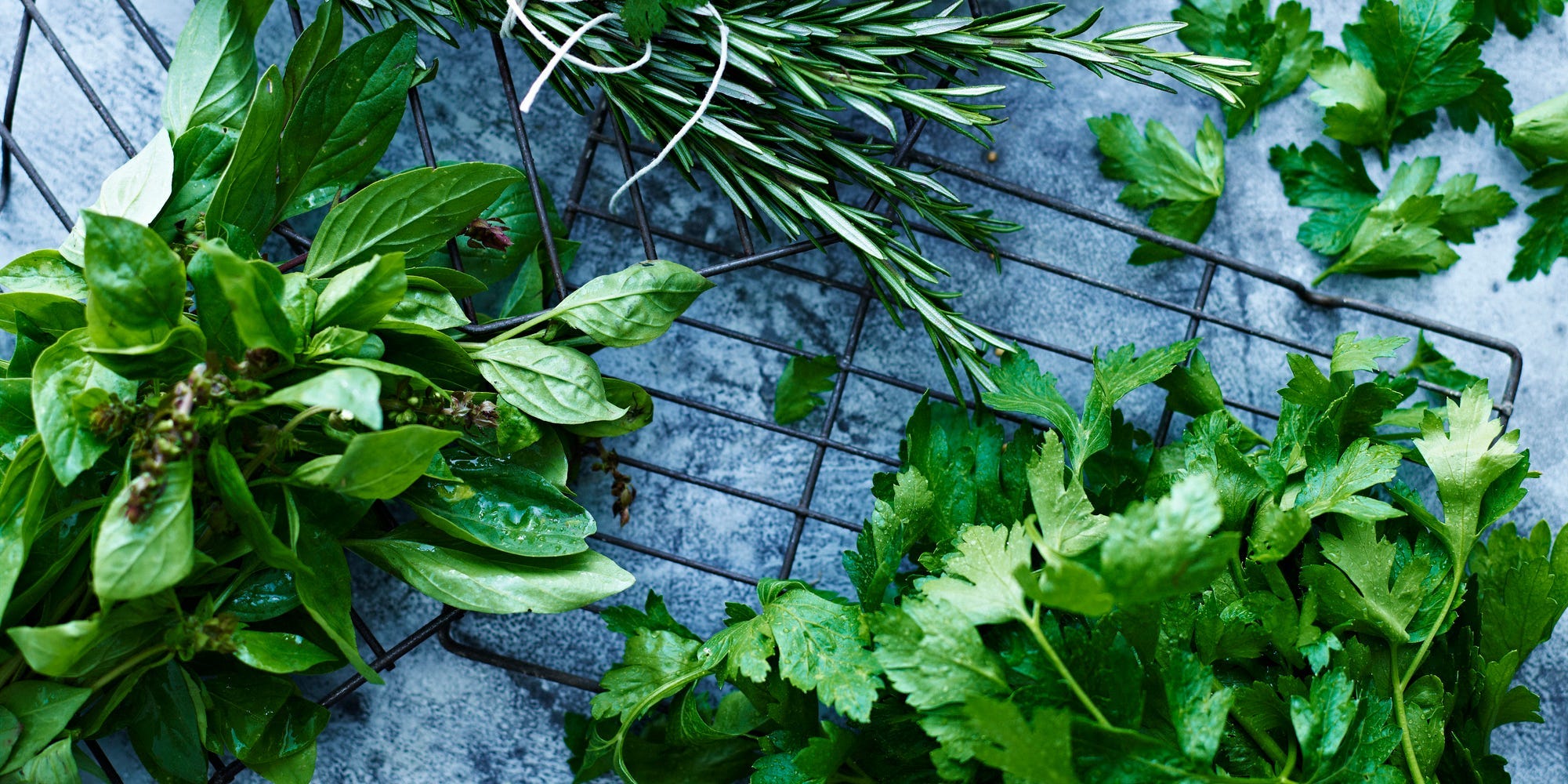
BRETT STEVENS/Getty Images
Fresh gourmet herbs like basil, rosemary, sage, and tarragon can make an excellent gift for the foodie or chef in your life. You can even grow them yourself indoors.
Herbs offer a variety of health benefits. Sage extracts, for example, have been found to enhance memory in both young and old volunteers, while oregano has antibacterial and cancer-fighting antioxidant properties.
Cheese
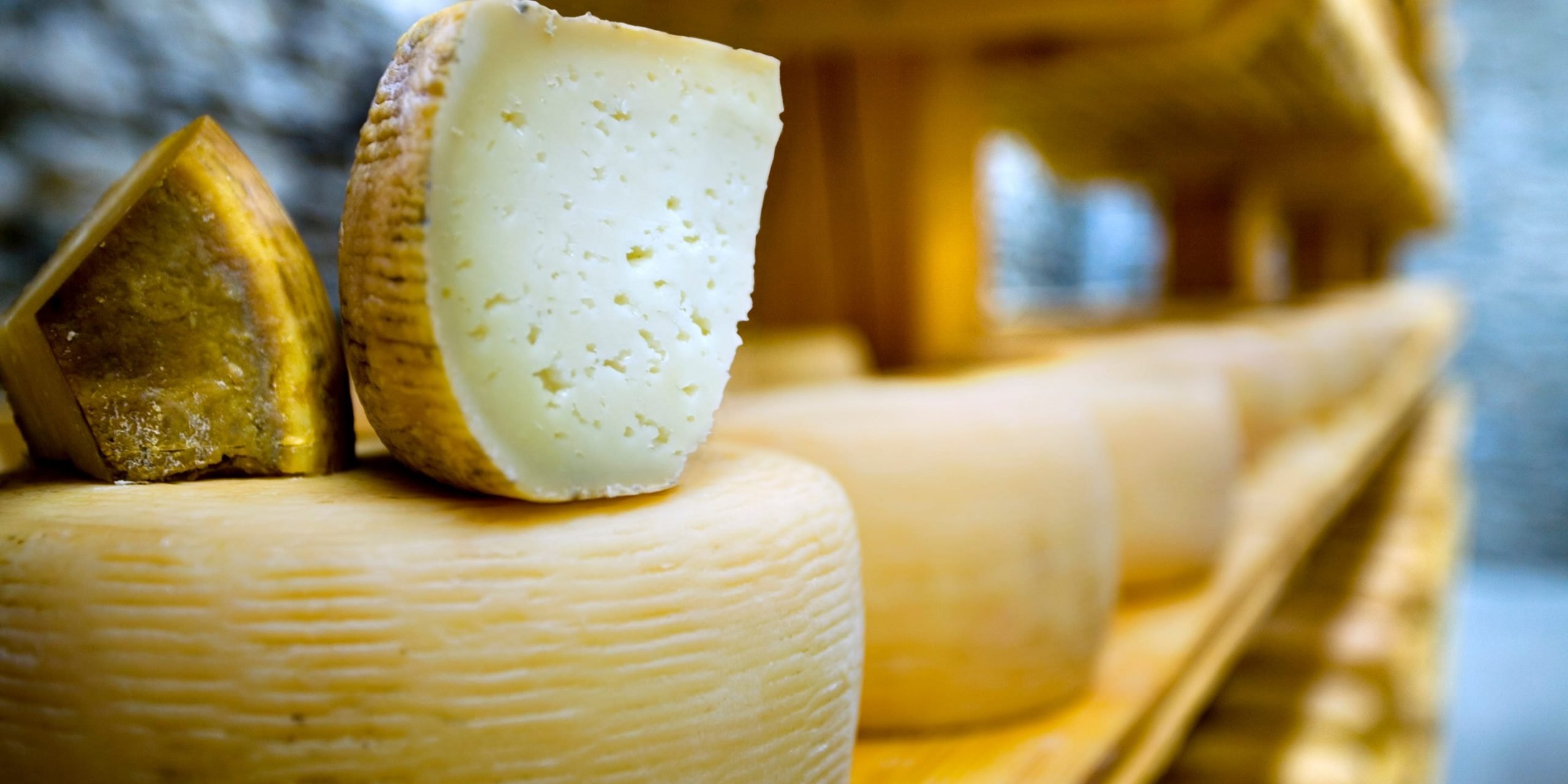
Royalty-Free / Getty Images
While cheese may get a bad rap for its high-fat content, it's a great source of important nutrients like protein and calcium. It's a versatile gift, too, because your recipient can cook with it, incorporate it into a charcuterie board, or snack on it.
Camembert, goat cheese, feta, and mozzarella tend to be lower in sodium and saturated fat than other popular varieties. Consider looking for hard cheeses like parmesan and gouda, which pack a lot of flavor into a smaller serving so you're less likely to overeat them.
Granola
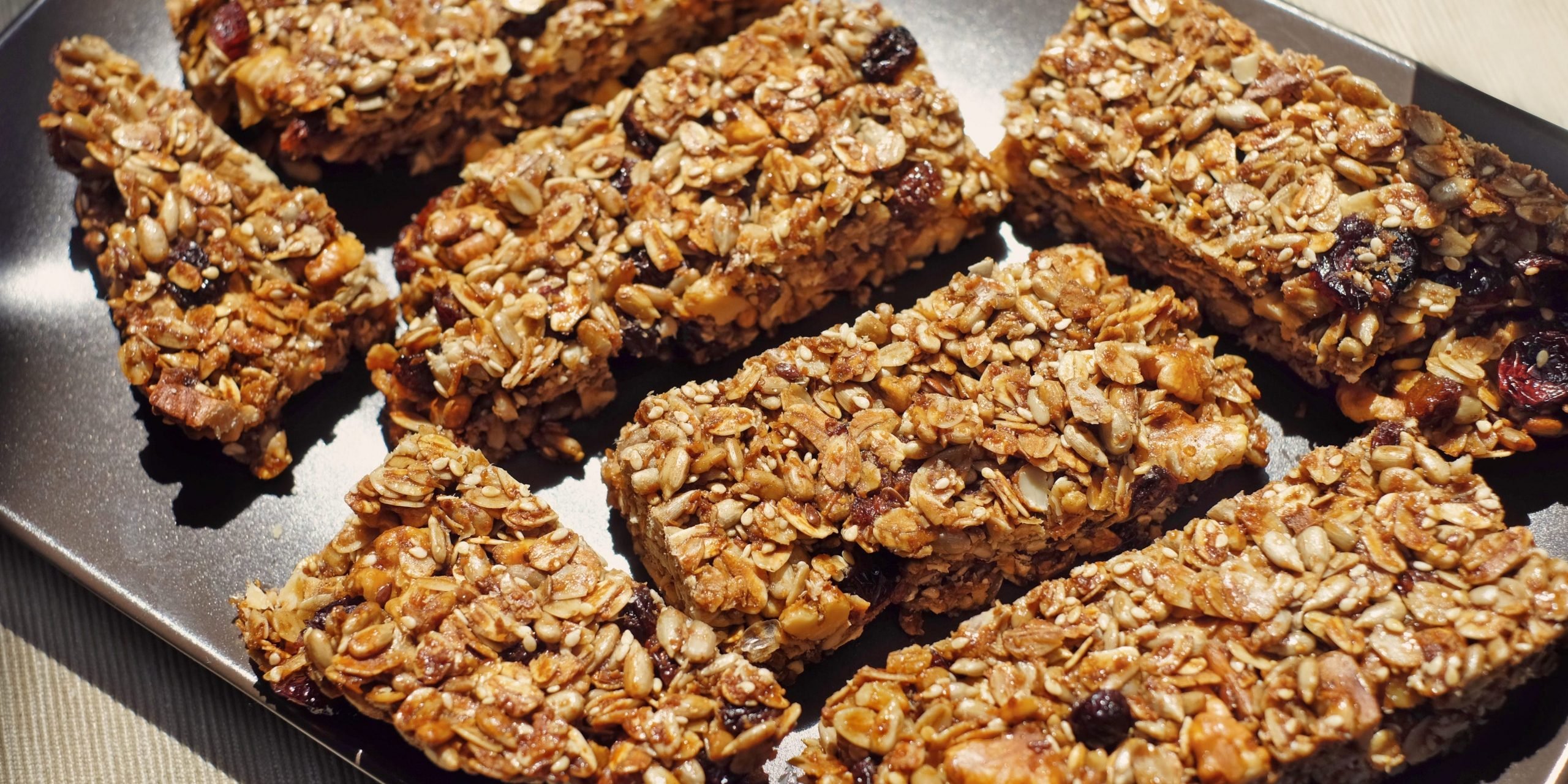
Ivory27/Shuttershock
Granola is a healthy snack or breakfast option since the base consists of baked rolled oats, which are packed with nutrients that can help lower cholesterol, improve gut health, and keep your blood sugar stable.
Not all products are created equal, though. To find the healthiest granolas, Gillespie advises checking the nutrition label to make sure it contains whole grains and minimal added sugar. Look for granolas that get their flavor from nuts and unsweetened dried fruit, rather than sugary syrups or chocolate.
Pure maple syrup
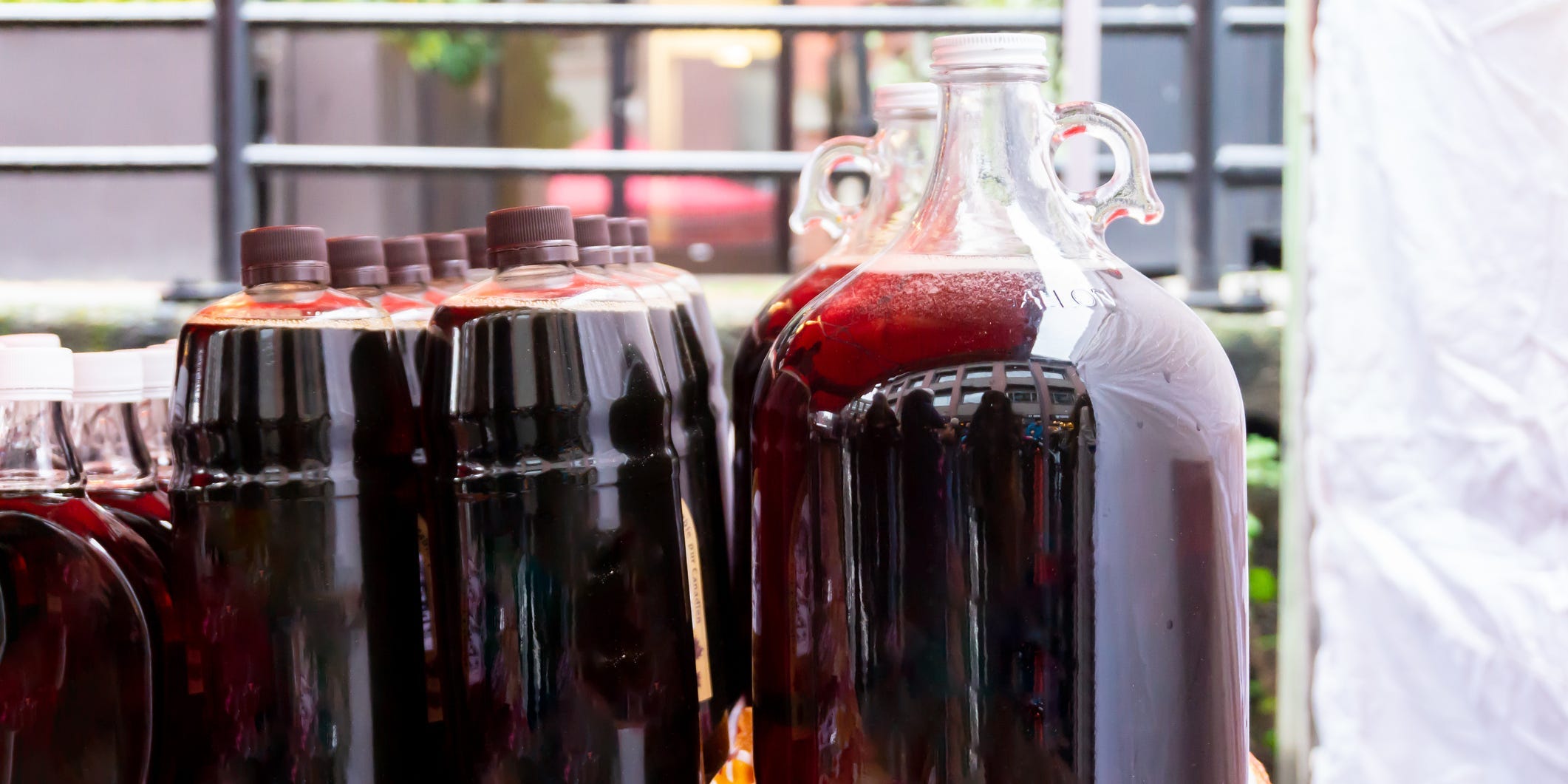
Joyce Grace/Getty Images
Maple syrup is technically considered a sugar, but it's a less refined option that boasts some nutritional value - making it an excellent alternative to sweeten coffee, oatmeal, yogurt, and more. It's rich in antioxidants and a good source of zinc and manganese.
Plus, maple syrup has a lower glycemic index than table sugar, meaning it causes a slower rise in blood sugar. Keep in mind that darker varieties, like grade B maple syrup, may contain more beneficial antioxidants.
Honey

Manuel Medir/Getty Images
Another natural sweetener that has a relatively low glycemic index and a high concentration of antioxidants is honey.
Studies have indicated that using honey instead of regular table sugar may decrease "bad" LDL cholesterol and total cholesterol as well as support your overall heart health. It's also been linked to an improvement in gut microbial balance, which is important for your overall health.
Try to seek out raw honey - since it's not processed, filtered, or pasteurized, it retains more antioxidants and you can rest assured that it isn't contaminated with added syrups or other ingredients.
Dark chocolate
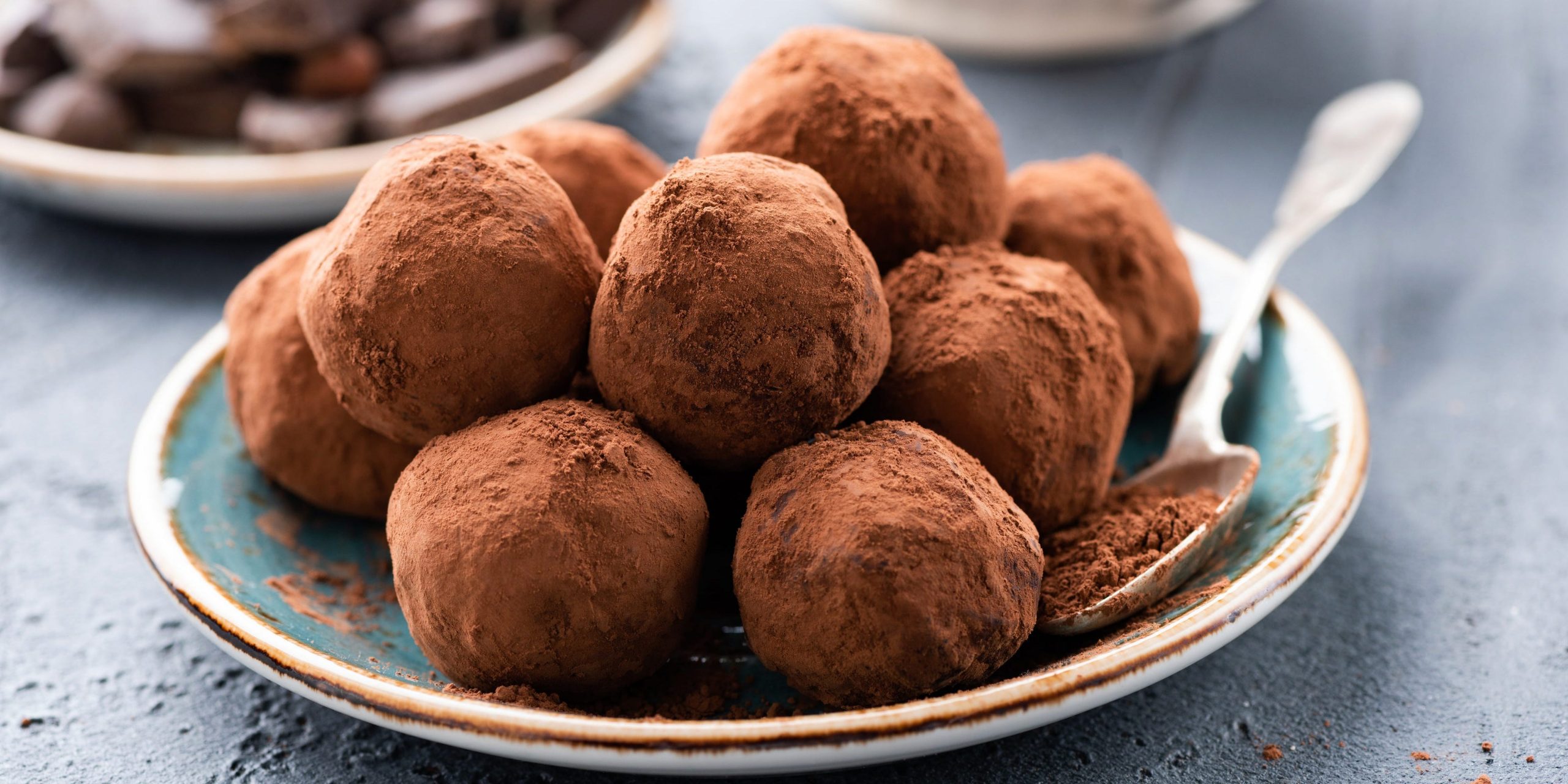
Arx0nt/Getty Images
Gillespie says dark chocolate is a healthier choice than milk or white chocolate because it typically contains minimal added sugar.
Moreover, compounds called flavonoids that are in dark chocolate have been linked to many health benefits, including lower cholesterol, blood pressure, and inflammation, and reduced risk of heart disease.
As a general rule, the higher the percentage of cacao, the less sugar and more antioxidants the chocolate contains. To get a double dose of antioxidants, Gillespie suggests making dark chocolate-covered strawberries for a healthy treat or gift.
Insider's takeaway
According to the American Heart Association (AHA), men should consume a maximum of 9 teaspoons (about 36 grams) of added sugars per day, while women should consume a maximum of 6 teaspoons (24 grams). However, the average American gets a whopping 17 teaspoons of added sugars each day - which contribute calories but have zero nutrients.
"Decreasing excessive sugar intake is an excellent way to lower your risk of diabetes, lose some weight, and generally feel healthier," says Keatley.
Fortunately, there are many flavorful indulgences that pack significantly less sugar than candy. All of the aforementioned options offer more health-promoting nutrients than most processed treats.
"A good-quality tea, coffee, or wine that someone wouldn't buy for themselves would make for a thoughtful and healthy foodie gift," says Sicko. "These are all items to be savored rather than devoured."
Related stories from Health Reference:
- What is diabetes? A comprehensive guide to lower blood sugar and manage the condition
- Why your blood sugar is high in the morning and how to lower it
- How to know if your blood sugar levels are healthy
- The difference between type 1 and type 2 diabetes and how to manage your symptoms
- Is diabetes genetic? Both type 1 and type 2 are influenced by family history - here's how to know your risk